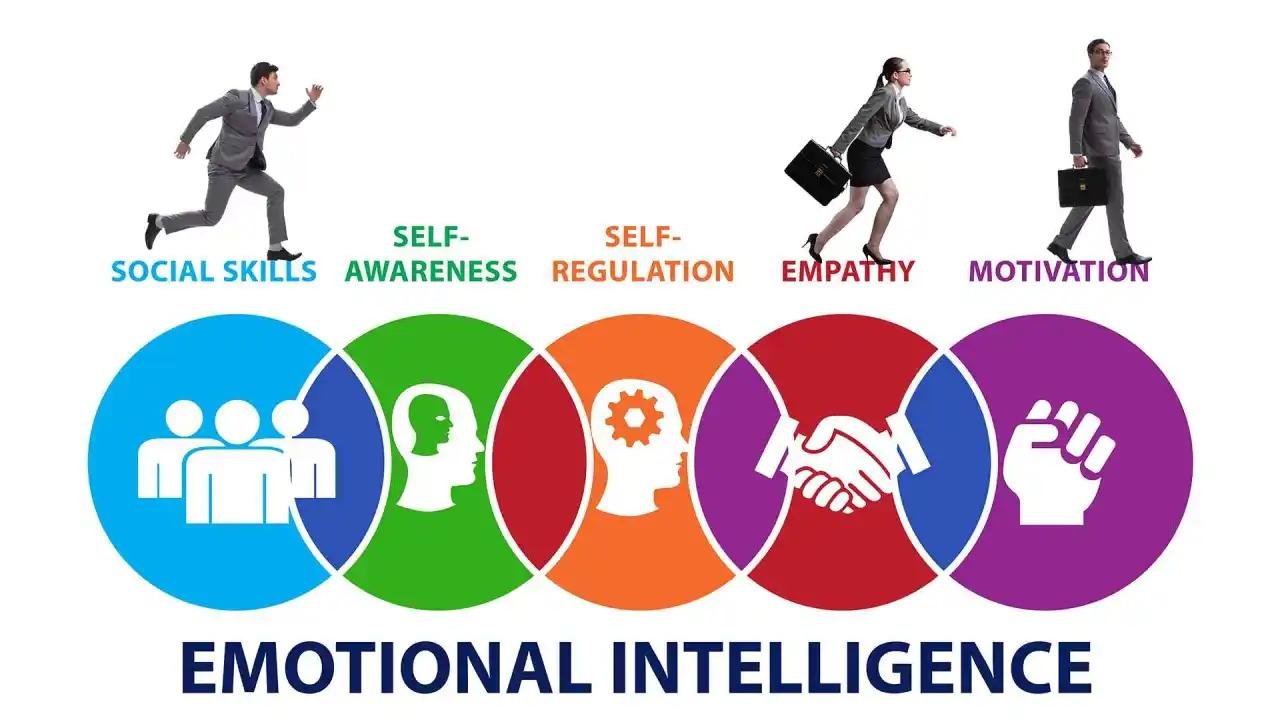The Importance of Emotional Intelligence in Leadership
Emotional Intelligence (EI) is a critical skill for effective leadership. It involves the ability to recognize, understand, and manage one’s own emotions and the emotions of others. Leaders with high emotional intelligence create a positive and productive work environment, foster strong relationships, and inspire and motivate their teams. In this page, we’ll explore the key components of emotional intelligence and its significance in leadership roles.
What is Emotional Intelligence (EI)?
Emotional Intelligence is the capacity to:
- Recognize emotions in oneself and others.
- Understand the impact of these emotions.
- Manage and regulate emotions effectively.
- Use emotions to facilitate thinking and problem-solving.
Key Components of Emotional Intelligence
Self-Awareness
- The ability to understand one’s emotions, strengths, weaknesses, and values.
- Self-aware leaders are conscious of how their emotions affect others, allowing them to act thoughtfully and purposefully.
Self-Regulation
- The ability to control or redirect disruptive emotions and impulses.
- Leaders with strong self-regulation stay calm under pressure, adapt to change, and make thoughtful decisions without being overwhelmed by emotions.
Motivation
- High levels of personal drive, ambition, and passion for work.
- Motivated leaders set challenging goals, show resilience, and inspire others through their enthusiasm and commitment.
Empathy
- Understanding the emotions of others and responding with compassion.
- Empathetic leaders build trust, connect with their team members, and create a supportive environment that values individual contributions.
Social Skills
- The ability to build and manage relationships, influence others, and communicate effectively.
- Leaders with strong social skills are skilled at conflict resolution, team building, and networking.
Why Emotional Intelligence Matters in Leadership

Building Trust and Collaboration
- Leaders who demonstrate empathy and social skills can build strong relationships and create a culture of trust.
- Trust enhances collaboration, encourages open communication, and promotes a sense of belonging within the team.
Enhanced Decision-Making
- Emotional intelligence enables leaders to make balanced and rational decisions, even under stress or in high-pressure situations.
- By understanding emotions, leaders can separate their feelings from facts, ensuring more accurate and objective decision-making.
Improving Team Morale and Performance
- Leaders with high EI foster a positive and motivating work environment.
- By understanding and addressing the emotions of team members, leaders can support their growth, reduce stress, and enhance overall productivity.
Conflict Resolution
- Emotional intelligence helps leaders navigate and resolve conflicts in a constructive manner.
- Empathy and social skills are crucial in understanding different perspectives, facilitating healthy dialogue, and reaching a resolution.
Developing Emotional Intelligence as a Leader

- Practice Self-Reflection
- Regularly reflect on your emotions, actions, and their impact on others. This practice helps build self-awareness.
- Seek Feedback
- Ask for feedback from colleagues and team members to understand how your behavior affects them.
- Manage Stress Effectively
- Develop stress-management techniques such as mindfulness or physical exercise to maintain emotional control in difficult situations.
- Develop Empathy
- Practice active listening and show genuine interest in the thoughts and feelings of others.
- Build Strong Relationships
- Invest time in building relationships with team members and colleagues, showing appreciation and support for their efforts.
Conclusion
Emotional Intelligence is a vital skill for leaders in today’s dynamic work environment. By developing self-awareness, empathy, and social skills, leaders can effectively manage their teams, foster collaboration, and drive success. Prioritizing EI as a leadership competency not only improves individual performance but also cultivates a positive and thriving organizational culture.
